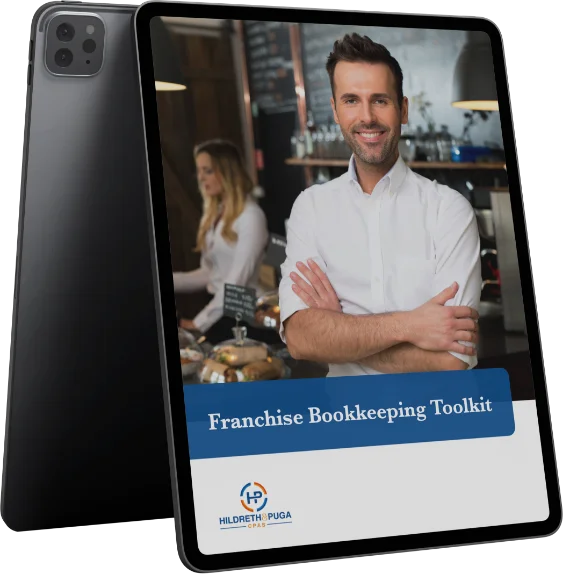Running a restaurant requires more than exceptional food and service, it requires careful financial planning and management. For many restaurants, seasonality plays a significant role in revenue and expenses, creating fluctuations that can be challenging to manage. Restaurant bookkeeping services are essential for maintaining clarity and control over your finances throughout these ups and downs.
This blog explores how professional bookkeeping services for restaurants help you navigate seasonality, ensuring your business remains financially sound year-round. We will also discuss the value of working with a knowledgeable CPA for restaurants, who can provide expert advice tailored to the unique challenges of the food service industry.
Understanding Seasonality In Restaurant Businesses
Seasonality refers to predictable variations in business activity that occur at certain times of the year. For restaurants, these fluctuations might be driven by weather, holidays, local events, or tourism cycles.
For example, a beachfront eatery might see a surge in revenue during summer months but slower sales in winter. Conversely, restaurants near convention centers might have busy periods tied to event schedules.
Understanding these patterns is crucial to effective financial management. Accurately forecasting income and expenses during peak and off-peak seasons helps you prepare cash flow, staffing, and inventory plans that optimize resources.
Why Seasonality Makes Restaurant Bookkeeping Services Vital
Managing seasonal swings complicates the bookkeeping process. You must track variable sales volumes, adjust costs accordingly, and maintain reserves to cover lean periods.
Professional restaurant bookkeeping services deliver the consistent, accurate financial records you need to understand your business performance across seasons. Bookkeepers skilled in seasonal businesses monitor key metrics daily, weekly, and monthly, allowing you to adapt quickly to changing conditions.
Without expert bookkeeping, it’s easy for cash flow gaps during slow periods to cause financial stress or missed opportunities for growth.
How Restaurant Bookkeeping Services Support Seasonal Planning
Effective bookkeeping is the foundation for strategic seasonal planning. It provides detailed insight into revenue trends, cost behavior, and profit margins specific to each season.
Tracking Seasonal Revenue And Expenses
Bookkeeping services for restaurants include precise tracking of sales data broken down by time periods. This helps identify which months or even days generate the most income.
Expenses such as inventory purchases, labor costs, and utilities are also monitored in detail. Some costs rise during busy seasons, while others remain fixed or fluctuate differently. Having this data helps you control spending and plan budgets aligned with your unique seasonality.
Managing Cash Flow Fluctuations
Seasonal restaurants often face uneven cash flow, with peaks followed by tighter periods. Skilled restaurant bookkeeping services forecast cash flow needs by analyzing historical data and current trends.
This planning ensures you have sufficient cash reserves to cover expenses during slow months without resorting to costly short-term financing. Proper cash flow management also enables you to invest strategically during peak seasons to maximize profits.
Optimizing Inventory And Labor Costs
Bookkeepers with restaurant expertise help manage inventory turnover and labor scheduling according to seasonality.
By analyzing past performance, you can avoid overstocking perishable goods during slow periods or understaffing when demand spikes. This reduces waste, controls costs, and maintains service quality.
Role Of A CPA For Restaurants In Seasonal Financial Management
While bookkeeping focuses on maintaining accurate financial records, a CPA for restaurants plays a critical advisory role. They interpret complex financial data to help you make informed decisions about growth, tax planning, and risk management.
Tax Planning And Compliance For Seasonal Businesses
Seasonality impacts tax liabilities and planning strategies. A CPA for restaurants understands how to time deductible expenses, manage estimated tax payments, and leverage credits based on income fluctuation, reducing your tax burden.
They also ensure compliance with federal, state, and local tax laws, avoiding costly penalties or audits. You can learn more about their Tax Preparation & Planning services designed to help restaurants optimize their tax obligations.
Strategic Advisory For Seasonal Challenges
Qualified CPAs provide insights into optimizing business structure and financing arrangements to better manage seasonal cycles. They advise on how to build cash reserves, secure working capital, and negotiate contracts suitable for fluctuating revenue.
This level of financial guidance supports the sustainability and resilience of your restaurant through the highs and lows of seasonality. Their Business Structure & Advisory services further assist in making strategic setups.
Benefits Of Outsourcing Restaurant Bookkeeping Services
Outsourcing your bookkeeping allows you to focus on operations and customer experience while ensuring your financial management keeps pace with seasonal changes.
Access To Specialized Expertise And Technology
Restaurant bookkeeping services bring experienced professionals with industry knowledge and advanced accounting software. They deliver timely reports customized for multi-unit franchises or single-location restaurants, capturing important seasonal data.
Cost Efficiency And Scalability
Rather than investing in full-time in-house financial staff, outsourcing offers a flexible and cost-effective solution—scaling support up or down depending on your restaurant’s needs.
This flexibility is especially valuable for seasonal businesses with variable workloads, ensuring professional service without unnecessary overhead.
Real-Time Financial Visibility
Regular financial updates and analysis from expert bookkeepers help you stay informed of your business health. This transparency is crucial for responding quickly to seasonal trends and making proactive adjustments. Additional support through CFO Services & Financial Due Diligence ensures your financial strategy adapts efficiently.
Tools And Resources To Manage Seasonality In Your Restaurant Finances
Expert restaurant bookkeeping services provide access to valuable resources designed for seasonality management.
Financial Reporting And Dashboard Tools
Custom financial dashboards and detailed monthly reports highlight season-specific trends in revenue, expenses, and cash flow. These tools support data-driven decision-making aligned with your business cycle.
Franchise Bookkeeping Toolkit
Specialized toolkits offer checklists, templates, and best practices focused on maintaining consistent bookkeeping and financial controls across all seasons and locations. Explore the Franchise Bookkeeping Toolkit to enhance your processes.offer valuable resources like the Franchise Bookkeeping Toolkit. This includes templates and best practices designed specifically for multi-unit franchise operators.
Get Your Free Franchise Bookkeeping Toolkit
Take control of your franchise finances with our free toolkit. Inside, you’ll find a monthly close checklist, a list of tasks to delegate, and practical tips for managing multiple locations more efficiently.

Free Bookkeeping Diagnostic Review
Services like a Free Bookkeeping Diagnostic Review for Multi-Unit Franchise Operators help identify vulnerabilities in your current financial processes and recommend improvements tailored to your seasonal business.
Taking Proactive Control Of Seasonal Financial Challenges
Navigating seasonality doesn’t have to mean uncertainty. Combining professional restaurant bookkeeping services with CPA advisory support gives you the tools and expertise to manage cash flow, control costs, and plan strategically.
If interested in learning more about how seasonality impacts your financial management, visit our About Us page. Ready to discuss your restaurant’s specific needs? You can easily Book A Call with our experts.
FAQs
What makes restaurant bookkeeping services different from other industries?
Restaurant bookkeeping must handle unique aspects like daily cash sales, tips, fluctuating inventory, and seasonal labor costs, requiring specialized knowledge and processes.
How can a CPA for restaurants help with seasonality?
CPAs provide tax planning, compliance, and strategic advice tailored to manage income fluctuations, helping optimize cash flow and minimize tax liabilities throughout the year.
Why should restaurants consider outsourcing bookkeeping services?
Outsourcing provides access to industry expertise, advanced technology, cost savings, and flexibility—especially valuable for managing seasonal workload variations.
How does effective bookkeeping support cash flow management during slow seasons?
Accurate bookkeeping forecasts cash flow needs, helping you maintain sufficient reserves and plan expenses to avoid financial stress in off-peak periods.
Besides seasonality, what other financial risks should restaurants watch out for?
ABeyond seasonal fluctuations, restaurants often face cash leaks from employee errors, supplier overcharges, payroll inaccuracies, or poor inventory tracking. These issues can quietly erode profits if not caught early. Our related guide, Bookkeeping for Restaurants: Preventing Cash Leaks Before They Happen, dives deeper into these risks and how to prevent them.
What tools are available to help restaurants manage seasonal financial challenges?
Tools like customized financial dashboards, Franchise Bookkeeping Toolkits, and diagnostic reviews offer insights and best practices to improve financial controls tailored to seasonality.
How often should seasonal restaurants review their financial reports?
Regular reviews—weekly and monthly—are recommended to track trends, adjust budgets, and respond quickly to changes in sales and expenses.
Can bookkeeping services help multi-unit restaurant franchises manage seasonality effectively?
Yes, centralized bookkeeping services and consistent processes across units provide visibility and control, enabling better seasonal planning and comparative performance analysis.




